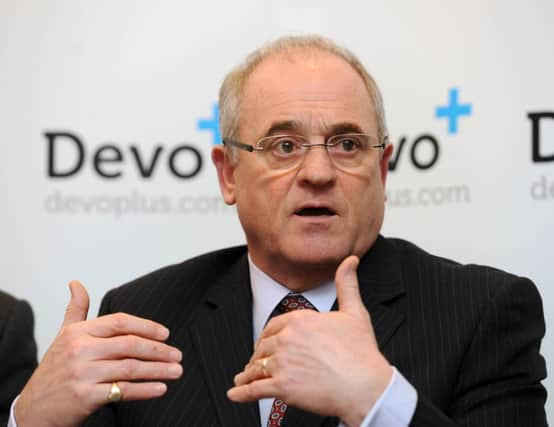NHS ‘a sticking plaster for tackling inequalities’


In a report released today, the committee concluded that a “joined-up approach across a raft of policy areas” is needed to tackle the problem.
MSPs on the Scottish Parliament’s health and sport committee found that while there had been “many well-intended initiatives” aimed at reducing the differences in health between affluent communities and those in deprived areas, “none has made any significant difference”.
Advertisement
Hide AdAdvertisement
Hide AdThe report said there was “agreement that some interventions, for example public health messages in relation to risky behaviours such as alcohol abuse, tobacco use, diet and exercise had been shown to have had little or no impact on health inequalities or, indeed, to have exacerbated them”.
Committee convener Duncan McNeil said: “That your income, your education and where you live contribute to how healthy you are is an issue that, as a society, should bring us significant shame.
“Since devolution, successive governments have made this a political priority and invested significant amounts of public money in tackling this complex issue. But sadly none has made any significant difference.”
CONNECT WITH THE SCOTSMAN
• Subscribe to our daily newsletter (requires registration) and get the latest news, sport and business headlines delivered to your inbox every morning
He added: “Our NHS can offer a sticking plaster, but without a new approach we will not tackle the root causes of inequality and improve the health outcomes of thousands of people across Scotland.”
In their report, MSPs said reducing health inequalities had been “a priority for every Scottish administration since devolution”.
They added: “Despite many well-intended initiatives, none has made any significant difference. Indeed, although health is improving, it is doing so less rapidly than in other European countries and although the latest figures are a little more encouraging, health inequalities remain persistently wide.”
The committee concluded most causes of health inequalities are “rooted in wider social and income inequalities”, as it stressed the need for a different approach.
Advertisement
Hide AdAdvertisement
Hide AdThe report said: “While there is no doubt that the NHS has a key role to play in tackling health inequalities and in measuring progress against the broad objectives of reducing health inequalities, it is clear that it cannot do so successfully entirely on its own, and the efforts to address the issue need to be made on a much wider number of fronts.”
The committee is writing to the conveners of other Holyrood committees, urging them to consider what could be done to reduce wider inequalities, arguing this would “have a corresponding impact on health and wellbeing inequalities”.
The MSPs said: “If real progress is to be made, significant efforts will, as we have stressed, have to be made across a raft of policy areas.”
Bob Doris, deputy convener of the health committee, said: “There is no one-size-fits-all solution to tackle health inequalities either for individuals or communities. There has clearly been the political will to tackle health inequalities, and our inquiry heard about ground-breaking work going on.
“But we need to ensure that the NHS isn’t left to pick up the pieces of wider inequalities, such as those being created by UK welfare reform.”
SEE ALSO
SCOTSMAN TABLET AND IPHONE APPS